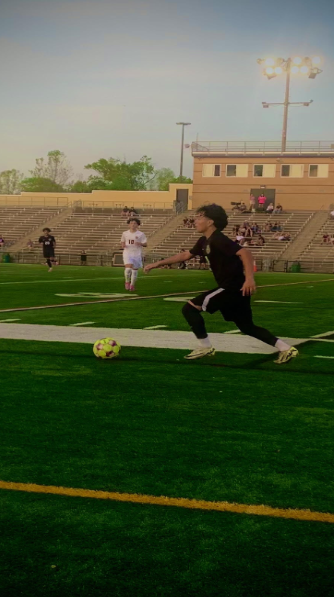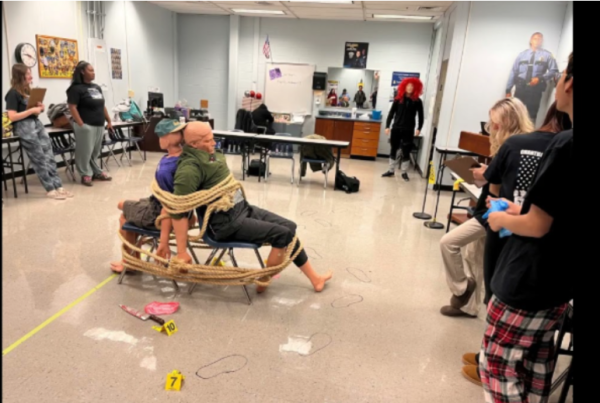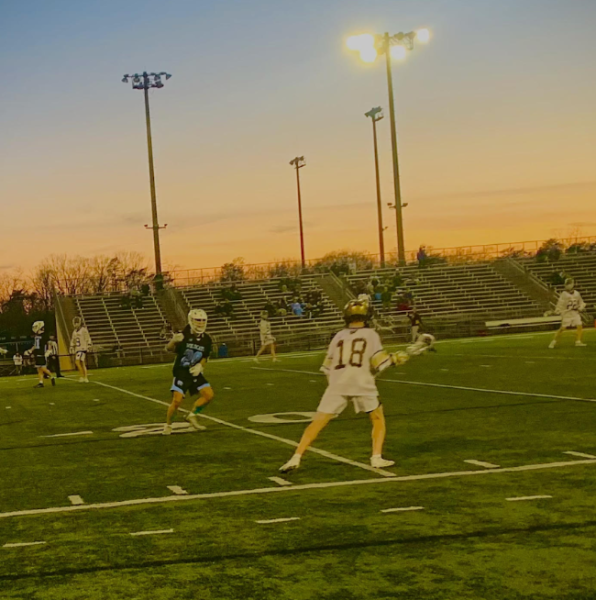PERCY JACKSON AND THE LIGHTNING THIEF MUSCIAL: BEHIND THE CURTAIN
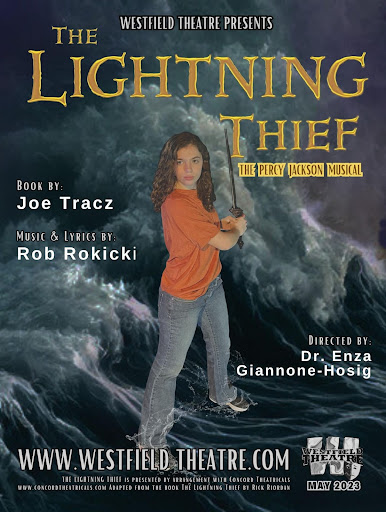
As a high schooler, it’s easy to become overwhelmed by all the projects you’re expected to do. Whether it’s a passion project or a school-assigned one, athletic or artistic, independent or group, you can become so absorbed by it that you forget that others are working on their own projects. Sometimes, to the point where an entire theatrical production can be produced right under your nose without you taking notice.
It’s only when you sit down to watch that production, a result of dozens of students and teachers spending hours of their lives rehearsing lines, practicing dance moves, building sets, making props, fitting costumes, matching sounds, etc., that you remember you’re not the only one who goes to this school. You are one student at a school of thousands who are all working on things completely independent from you. And that realization makes you feel more like a member of this school than you ever did when you were just focused on what was happening to you.
At least that’s what happened to me when I went to go see Percy Jackson and the Lightning Thief musical. I wanted to offer the cast and crew of the Westfield Theater a chance to explain their respective crafts so that I, and hopefully you, could gain a better appreciation of theater as an art form. Only a few people took me up on that offer, but their insight was more than I could have asked for. Here are the highlights.
Drake: “What drew you to the theater department?”
T.J. Craypoff as Cyron, Gabe, and Hades: “I think I was bored, but it was fun, and after the first show I started to enjoy it. So when I started going to this school I just kinda kept doing it and kept having fun.”
Drake: “What do you wish other students understood about the theater department?”
T.J.: “I think they need to respect it more. There is a lot of work put into each production, we have to build every set and memorize every line and motion, it’s not the hardest thing in the world but it is a lot harder than you’d think. Certain stereotypes about theater are true but there are a lot of normal people and I want others to realize that.”
Drake: “How much time did you spend rehearsing?”
T.J.: “At first we’d rehearse from 3 to 5 every weekday except Friday. Last month it was from 3 to 6. The final week was from 3 to 9 and every day but Sunday.”
Drake: “What makes theater different from other art forms?”
T.J.: “It’s life. I think people forget that. People are human, they make mistakes, and people see it. Sometimes people in the audience yell random things or make faces to try and make you break character and you have to deal with that.”
Drake: “What drew you to the theater department?”
Elias Collier as Ares, Charon, Minatour, and Kronos: “I wanted to do something in my spare time, and since I didn’t get to do it at my old school, I thought I’d give it a try. Plus I like the people there.”
Drake: “What challenges are there having to play three minor characters as opposed to one major one?”
Elias: “Luckily my characters didn’t have a lot of lines. Because I was one of the only men in the higher sections I had to learn all the songs. The hardest part was switching between costumes in time.”
Drake: “How do you cope with an art form that involves being judged by your peers?”
Elias: “I’ve gotten to a point as a person where I don’t care what other people think. I’m confident enough in myself and in my cast to know that nothing strangers say can affect me.”
Drake: “What makes theater different from other art forms?”
Elias: “It’s about putting yourself out there. Movies can be recut and recast. In a play, there is no do-over. It combines a lot of different things. There are so many moving parts that go into it like dance, music, acting, and so on. The fact that you only have one shot, makes it more entertaining.”
Drake: “What drew you to the theater department?”
Eloise Latimer Lead Carpenter, Assistant Stage Manager, Set Design, and Stage Crew: “Because I was in the middle school theater department so I guess I kept going.”
Drake: “You had more jobs listed than any other crew member. What did each entail and how did you manage all of them simultaneously?”
Eloise: “Set design is the first half of the production. It’s designing the set so that the actors can use it. Most of that’s just drawing up blueprints. When it comes to making the sets you use a lot of power tools, and for each one you have to fill out a separate safety test for that specific tool. In the second half, you don’t need a set designer because the sets have already been built. Stage crew and Assistant Stage Manager aren’t that different, you mainly just help wherever you’re needed most. They don’t overlap when a role is working, so it was fairly easy to manage.”
Drake: “When designing sets for a smaller production like this, you have to make sure that the one set you have worked for all the story’s settings, of which Percy Jackson has many. What were some key decisions you made when designing the sets to accomplish this?”
Eloise: “There are 3 different kinds of sets. There are on-set shows which are normally hyper-realistic. Multi sets which have large items moved on and off. And the other type is unit sets when you bring on pieces of furniture. We used a unit set which is easiest because we just brought on different pieces of furniture to change the scene. Most productions use a unit set for the same reason.”
Drake: “What makes theater different from other art forms?”
Eloise: “The way you present yourself is different. No one is presenting themselves since we’re working with pre-existing material. If you’re an actor you’re trying to portray the character and if you’re a production designer you’re trying to portray the setting. You do make it your own in little ways, but you’re also trying to convey something very specific.”
Drake: “What drew you to the theater department?”
Alexa Goodchild Head of Sound Team: “I wanted a way to make new friends and to be included. I also thought it is cool to work with sound equipment.”
Drake: “What does Head of Sound entail?”
Alexa: “You have to organize a lot of audio files and figure out who uses what microphone. You also need to memorize which sound effects go where and make sure they get played at the right time. Because no one is perfectly on time you can’t rig the sounds to play at the same time each so, someone on the sound team has to play them off of a soundboard. Those sound effects add a lot to the show and if you play the wrong one at the wrong time people will notice.”
Drake: “When most people think about theater they tend to think about the actors. Oftentimes the production crew is forgotten about. Does this frustrate you or do you enjoy being able to express yourself creatively without nearly as much public scrutiny?”
Alexa: “I mean I picked tech because I didn’t want to be on stage, but I do think we deserve more recognition. When people think of theater they usually only think about the actors because those are the people whose work you’re seeing, and of course, you can’t have a play without actors, but without a head of sound you wouldn’t be able to hear the actors.”
Drake: “What makes theater different from other art forms?”
Alexa: “There are no takebacks. Actors in movies get to redo a take if they mess up, and other artists like painters can fix their mistakes, but in theater, you have to incorporate your mistakes into the performance.”
Drake: “What drew you to the theater department?”
Kevin Laub as Poseidon: “Dr. G knew that I would feel comfortable performing in front of other people. She told me that where she used to work they would do faculty cameos. I told her I didn’t have a ton of time but when she mentioned Poseidon I told her I could do that.”
Drake: “Were you the only teacher asked to play a part in the play?”
Mr. Laub: “I know that Mr. Sulkin was asked to be in the play, there might have been a few others, but any role is a huge time commitment so I don’t blame anyone who didn’t participate.”
Drake: “What was it like having to work with a cast of students?”
Mr. Laub: “It was a lot like working with adults. Everyone is crazy and having fun, but still take the production and the end product very seriously. It reminded me of being in high school, everyone is dedicated to delivering the best possible show they can. The students were all welcoming, they made me feel like a part of the cast.”
Drake: “What makes theater different from other art forms?”
Mr. Laub: “It’s the one art form that disappears as it’s being made. You are building a machine and as you are doing so it’s disappearing. If you mess up in the theater there is no taking it back. You can’t afford to stop moving forward or second guess what you’re doing. That’s what’s exciting about it. The show you’re watching or putting on will never be performed again in the same way. Once it’s over it’s gone. You didn’t make it so it can be looked at, you made it so that the people who experience it could have a powerful memory to look back on. The theater is great because you’re sharing the same air as the actors, you’re occupying the same space.”
I hope it’s clear from these interviews that a lot more goes into a show like Percy Jackson than just the singing and the dancing. Students and faculty have to dedicate a truly absurd amount of time and energy to produce just two hours of entertainment. Except it’s not two hours is it? It was two hours for me, but I only saw one of the several shows they put on. And when you consider the number of people who saw each of those performances, assuming each one had a nearly packed auditorium like the one I went to, that’s hundreds of people each experiencing a different two-hour show that they’ve made unique by being there to experience it. We’re living in a world where artists are finding new and creative ways to bridge the gap between themselves and their audience, but theater eliminates that gap by putting the audience in the same room at the same time the art is being made. And even though I and many others will prefer to pursue other art forms, I will always be grateful to the Westfield theater department for keeping this art form alive.
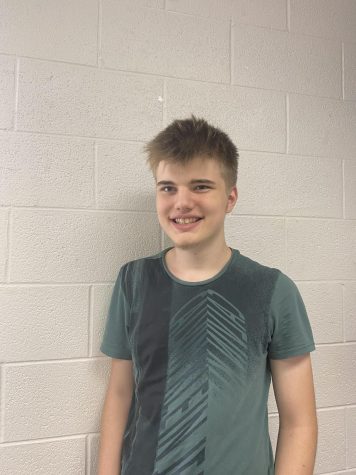
I’ve got a lot of ideas, too many ideas, so I’m always very active during brainstorming sessions, and when someone else is depending on me to bring...






